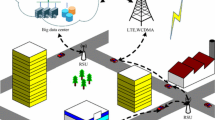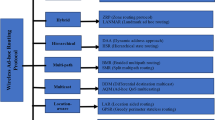Abstract
In recent years, wireless technologies have gained enormous popularity and used vastly in a variety of applications. Mobile Ad hoc Networks (MANETs) are temporary networks which are built for specific purposes; they do not require any pre-established infrastructure. The dynamic nature of these networks makes them more utilizable in ubiquitous computing. These autonomous systems of wireless mobile nodes can be set up anywhere and anytime. However, due to high mobility, absence of centralized authority and open media nature, MANETs are more vulnerable to various security threats. As a result, they are prone to more security issues as compared to the traditional networks. Ad hoc networks are highly susceptible to various types of attacks. Sequence number attacks are such hazardous attacks which greatly diminish the performance of the network in different scenarios. Sequence number attacks suck some or all data packets and discard them. In past few years, various researchers proposed different solutions for detecting the sequence number attacks. In this paper, first we review notable works done by various researchers to detect sequence number attacks. The review thoroughly presents distinct aspects of the proposed approach. In addition, we propose a proactive predictive approach to mitigate sequence number attacks which discovers misbehaving nodes during route discovery phase. The proposed approach suggests modifications in Ad hoc on-demand distance vector (AODV) routing protocol.



Similar content being viewed by others
References
Li W, Joshi A (2008) Security issues in mobile ad hoc networks-a survey. Department of Computer Science and Electrical Engineering, University of Maryland, Baltimore County, pp 1–23
Patel PP, Jhaveri RH (2015) Various schemes to detect selfishness in wireless ad-hoc networks: a survey. 2015 International Conference on Green Computing and Internet of Things (ICGCIoT). IEEE, Noida, India, pp 881–886
Pathan ASK (ed) (2016) Security of self-organizing networks: MANET, WSN, WMN, VANET. CRC Press, Boca Raton
Kannhavong B, Nakayama H, Nemoto Y, Kato N, Jamalipour A (2007) A survey of routing attacks in mobile ad hoc networks. IEEE Wirel Commun 14(5). https://doi.org/10.1109/MWC.2007.4396947
Luo J, Fan M, Ye D (2008) Black hole attack prevention based on authentication mechanism. In: Communication Systems, 2008. ICCS 2008. 11th IEEE Singapore International Conference on IEEE, pp 173–177
Chlamtac I, Conti M, Liu JJ (2003) Mobile ad hoc networking: imperatives and challenges. Ad Hoc Netw 1(1):13–64
Venkanna U, Velusamy RL (2011) Black hole attack and their counter measure based on trust management in manet: a survey. In: 3rd International Conference on Advances in Recent Technologies in Communication and Computing (ARTCom 2011), Bangalore, pp 232–236. https://doi.org/10.1049/ic.2011.0087
Zolfaghari M, Sadeghzadeh M, Frouzande R, Emami A (2016) Methods for detection and removal of grayhole attack in mobile adhoc network (MANET). In: American Journal of Software Engineering and Applications. Special Issue: Advances in Computer Science and Information Technology in Developing Countries, vol 5, no. 3–1. pp 15–19. https://doi.org/10.11648/j.ajsea.s.2016050301.14
Dwivedi V, Ahmad S (2016) Detection and prevention methods of black hole & gray hole attacks in MANET—a critical survey. ACEIT Conference Proceeding
Jhaveri RH, Patel NM (2015) A sequence number based bait detection scheme to thwart grayhole attack in mobile ad hoc networks. Wirel Netw 21(8):2781–2798
Jhaveri RH, Narendra MP (2017) Attack-pattern discovery based enhanced trust model for secure routing in mobile ad-hoc networks. Int J Commun Sys 30(7). https://doi.org/10.1002/dac.3148
Sengathir J, Manoharan R (2015) Exponential reliability coefficient based reputation mechanism for isolating selfish nodes in MANETs. Egypt Inform J 16(2):231–241
Alheeti KMA, Gruebler A, Mcdonald-Maier K (2017) Using discriminant analysis to detect intrusions in external communication of self-driving vehicles. Digital Commun Netw 3(3):180–187
Poongodi M, Bose S (2015) Detection and prevention system towards the truth of convergence on decision using Aumann agreement theorem. Procedia–Procedia Comput Sci 50:244–251
Dhananjayan G, Subbiah J (2016) T2AR: trust-aware ad-hoc routing protocol for MANET. Springerplus 5(1):995
Wang Xiao, Yang Jing, Li Zetao, Li Handong (2014) The energy-efficient group key management protocol for strategic mobile scenario of MANETs. EURASIP J Wirel Commun Netw 2014(1):161
Subbaraj Surendran, Savarimuthu Prakash (2014) EigenTrust-based non-cooperative game model assisting ACO look-ahead secure routing against selfishness. EURASIP J Wirel Commun Netw 2014(1):78
Muthuramalingam S, Suba Nachiar T (2016) Enhancing the security for manet by identifying untrusted nodes using uncertainity rules. Indian J Sci Technol 9(4). https://doi.org/10.17485/ijst/2016/v9i4/87043
Singh O, Singh J, Singh R (2017) An intelligent intrusion detection and prevention system for safeguard mobile adhoc networks against malicious nodes. Indian J Sci Technol 10(14). https://doi.org/10.17485/ijst/2017/v10i14/110833
Gundluru N, Pradeep Reddy CH (2017) Soft-computing based trust management framework for group key management in MANETs. Int J Intell Eng Sys 10:327–336. https://doi.org/10.22266/ijies2017.0630.37
Babu SV, Afrose S, Vijila CKS (2016) An effective attack elimination method for top-k query processing in MANETS. pp 9–12
Manoharan R, Sengathir J (2016) Erlang coefficient based conditional probabilistic model for reliable data dissemination in MANETs. J King Saud Univ –Comput Inform Sci 28(3):289–302
Ahmed MN, Abdullah AH, Chizari H, Kaiwartya O (2017) F3TM: flooding factor based trust management framework for secure data transmission in MANETs. J King Saud Univ Comput Inf Sci 29(3):269–280
Li Wenjia, Song Houbing (2016) ART: an attack-resistant trust management scheme for securing vehicular ad hoc networks. IEEE Trans Intell Transp Syst 17(4):960–969
Rathnamma MV, Reddy PC (2016) A relationship-based approach for energy aware secure routing in MANETs. Int J Smart Grid Green Commun 1(1):87–101
Patel AD, Chawda K (2015) Dual security against Grayhole attack in MANETs. In: Jain LC, Patnaik S, Ichalkaranje N (eds) Intelligent computing, communication and devices: proceedings of ICCD 2014, vol 2. Springer, New Delhi, pp 33–37
Priyadharshini MR, Prasanna S, Balaji N (2014) Energy and mobility based group key management in mobile ad hoc networks. In: 2014 International Conference on Recent Trends in Information Technology, Chennai. pp 1–7. https://doi.org/10.1109/ICRTIT.2014.6996130
Sengathir J, Manoharan R (2015) A futuristic trust coefficient-based semi- Markov prediction model for mitigating selfish nodes in MANETs. EURASIP J Wirel Commun Netw 2015:158. https://doi.org/10.1186/s13638-015-0384-4
Kamaraj N, SenthilKumar C, Manikandan T, SebastinAlbina C, Shitharth S (2014) Modified TSR protocol to support trust in MANET using fuzzy. Int J Innov Res Sci Eng Technol 2551–2555
Kumar Adarsh, Gopal Krishna, Aggarwal Alok (2016) Design and analysis of lightweight trust mechanism for secret data using lightweight cryptographic primitives in MANETs. IJ Netw Secur 18(1):1–18
Xia H, Jia Z, Li X, Ju L, Sha EHM (2013) Trust prediction and trust-based source routing in mobile ad hoc networks. Ad Hoc Netw 11(7):2096–2114
Introduction to linear regression Olinestatebook.com (2018) http://onlinestatebook.com/2/regression/inro.html. Accessed 2 Jan 2018
Author information
Authors and Affiliations
Corresponding author
Rights and permissions
About this article
Cite this article
Desai, A.M., Jhaveri, R.H. Secure routing in mobile Ad hoc networks: a predictive approach. Int. j. inf. tecnol. 11, 345–356 (2019). https://doi.org/10.1007/s41870-018-0188-y
Received:
Accepted:
Published:
Issue Date:
DOI: https://doi.org/10.1007/s41870-018-0188-y




